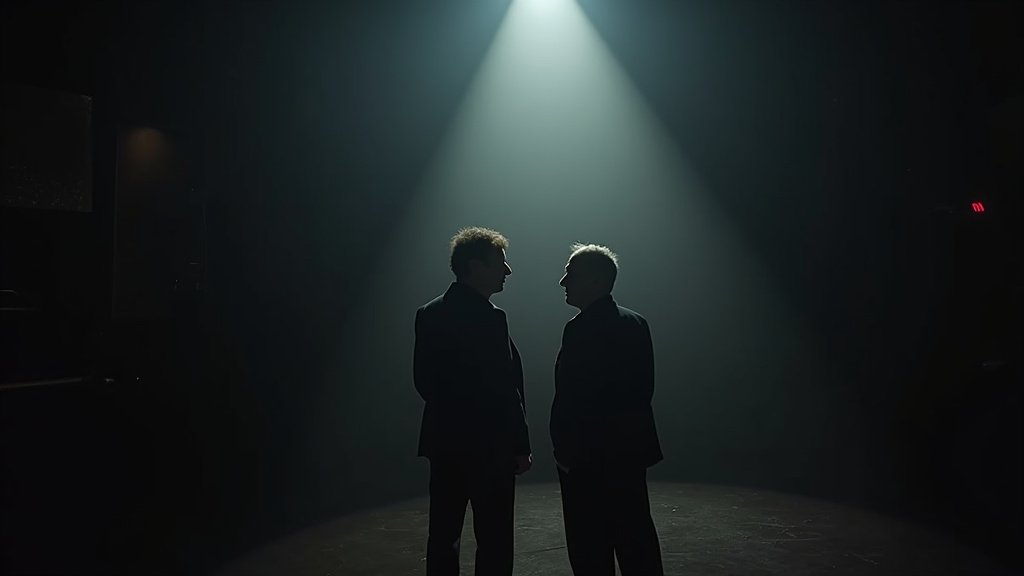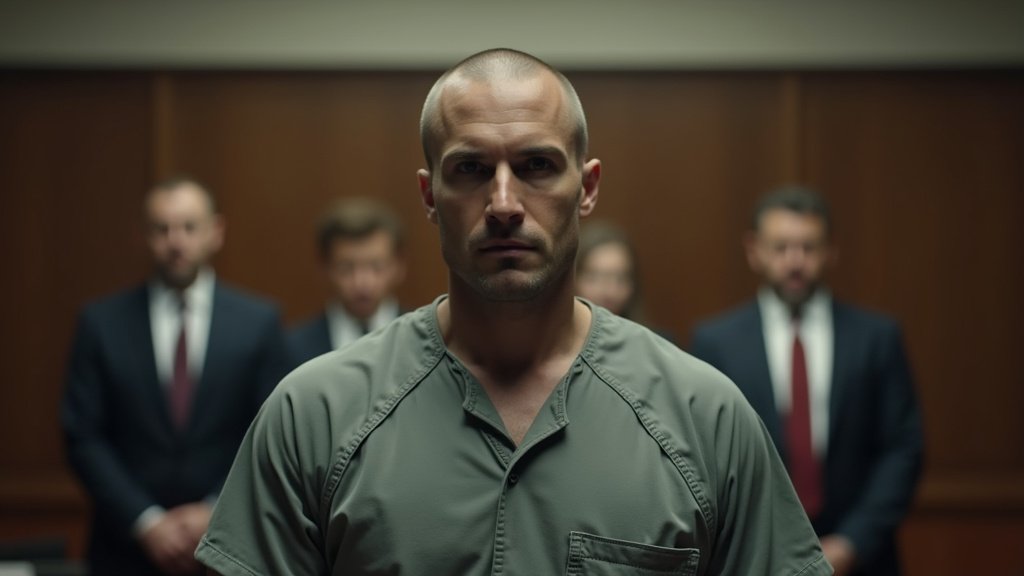Hollywood, the beating heart of the entertainment industry, never ceases to amaze. Whether it’s the latest film release, a celebrity breakup, or the next big casting rumor, Hollywood’s hype machine spins non-stop. While some stories are fleeting, others stick, shaping the year’s biggest moments in cinema and pop culture. In this deep dive, we’re unmasking the current frenzy in Tinseltown—those headline-grabbing stories that fuel excitement, spark debate, and keep audiences on the edge of their seats.
The Blockbuster Craze: How Studios Craft the Perfect Hype Storm
Let’s start with the bread and butter of Hollywood—blockbusters. With superhero sagas, sprawling franchises, and CGI-filled epics, the machine behind these movies is more complex than ever. These aren’t just films; they’re events, marketed with military precision months, sometimes years, before their actual release.
Marvel, DC, and major studios have mastered the formula of turning a movie into a phenomenon. Trailers drop strategically, often during high-profile events like the Super Bowl or Comic-Con, setting off a frenzy of speculation. Teaser posters, exclusive interviews, and, of course, cryptic social media teasers create an ever-tightening web of excitement. It’s no longer just about making a great film; it’s about creating a global conversation. And that conversation is orchestrated long before the film graces the silver screen.
The “Universe” Effect
Studios have discovered that standalone films are no longer enough. Franchises are the golden ticket, and “cinematic universes” are the treasure map. Look no further than Marvel, where nearly every film ties into another. Each post-credits scene is designed to tantalize fans, promising connections that stretch across multiple films. The result? A built-in audience that not only watches the latest release but is compelled to stay engaged for future installments.
However, this massive interconnected storytelling also comes with risk. As much as people crave the next chapter in these never-ending sagas, there’s always the question of franchise fatigue. Does each film truly stand on its own, or are studios relying too heavily on the promise of what’s next?
Release Delays and “Reshoots Panic”
A wrinkle that often gets Hollywood fans buzzing is news of reshoots or, even worse, a delayed release. It’s the equivalent of pressing the red button on the hype machine—instantly, speculation spirals. The truth? Reshoots are often part of the process for blockbuster films, allowing studios to tweak and polish before release. Yet, in the media, it signals turmoil. Take the countless stories swirling around major projects like The Flash or Aquaman 2, where last-minute changes had fans and critics alike predicting disaster.
Delays, especially post-pandemic, have taken on a life of their own. The uncertainty caused by COVID-19 reshuffled release calendars, causing ripples throughout the industry. While studios attempted to adapt with streaming premieres, the magic of the theater experience remains a cornerstone of Hollywood’s brand. The buildup to a summer blockbuster now feels like more of a gamble than ever, but when the payoff hits, it’s worth every minute of the wait.
Celebrities on the Hype Train: The Drama Behind the Glamour
Hollywood is nothing without its stars, and let’s be honest—celebrity drama is just as much a part of the entertainment landscape as the films themselves. There’s a reason why we’re drawn to stories about breakups, feuds, and scandals. In 2024, the celebrity hype cycle is on full blast, with no sign of slowing down.
The Breakup Heard Around the World
Hollywood breakups are often messier than any romantic comedy plot twist, and when A-listers call it quits, it’s big news. Just think of the buzz surrounding the rumored split between two of Hollywood’s most beloved couples—actors with picture-perfect red carpet moments suddenly embroiled in tabloid scandals. The press and social media go into a frenzy. Within hours, “insider sources” are dishing details, while Instagram and TikTok light up with fan reactions and conspiracies.
Part of the allure? These breakups often seem scripted for the public eye. Sure, the personal lives of stars are real, but it’s hard to ignore how well-timed some of these reveals are. In many cases, big personal announcements—whether splits, engagements, or even baby news—align with the release of a major project, leading to speculation that the stars (and their agents) are carefully orchestrating the narrative to dominate headlines.
The Comeback Queen (or King)
For every celebrity embroiled in controversy, there’s one preparing for a major comeback. Whether it’s a former child star looking to reinvent themselves or an actor returning to a beloved role, comebacks fuel their own kind of hype. Hollywood loves a redemption arc, and the fans do, too.
In 2024, we’re seeing several stars attempt to reclaim the spotlight after a hiatus or scandal. The most successful comebacks often hinge on timing—jumping back into the game when public nostalgia is at its peak. Think of the resurgence of ‘90s icons, who are suddenly more relevant than ever thanks to reboots, reunions, or cleverly crafted social media presences. These stars know exactly when and how to drop their next project to ride the wave of renewed interest.
The Power of the Streaming Wars: Netflix vs. Everyone
No discussion about Hollywood hype would be complete without mentioning the rise of streaming platforms. Streaming services like Netflix, Disney+, Amazon Prime, and Hulu have completely transformed the way we consume content—and the way Hollywood generates buzz.
The Original Content Arms Race
It’s no secret that Netflix, once a mere DVD rental service, has become a kingmaker in Hollywood. But now, nearly every major studio has launched its own streaming platform, turning content into a battleground. With this shift, original programming is more crucial than ever, and studios are sinking millions into creating series and films that will dominate the cultural conversation.
Netflix, in particular, has mastered the art of creating buzz around its releases. Shows like Stranger Things, Wednesday, and Bridgerton become instant global phenomena, in part because of their binge-able nature. Entire seasons drop at once, and within hours, social media is flooded with reactions, memes, and theories. The conversation builds rapidly, as fans race to avoid spoilers.
However, this model is increasingly being challenged. Some platforms, like Disney+ and HBO Max, have returned to weekly releases for their flagship shows. This slow-drip approach fosters longer-lasting hype, with each episode becoming an event in itself. Think about the weekly anticipation for shows like The Mandalorian or House of the Dragon. Audiences are given time to speculate, discuss, and theorize between episodes, keeping the conversation alive for months.
The Battle for the Next Viral Hit
Streaming platforms are also in a race to capture the next viral sensation. What Netflix did with Squid Game—a relatively unknown Korean show that became a global obsession—has become the gold standard. But how do studios ensure that kind of magic happens again?
Part of the answer lies in understanding what drives online conversation. Platforms now study user data obsessively, understanding which genres and themes are most likely to hit. Whether it’s true crime documentaries, nostalgic reboots, or groundbreaking sci-fi, every platform is on the lookout for that one project that will break through the noise and dominate the cultural zeitgeist.
The Future of Hollywood Hype: AI, Fan Theories, and Virtual Influencers
As we look to the future, the Hollywood hype machine is only getting more sophisticated. Technology is playing an increasingly prominent role, changing the way films are made, marketed, and consumed.
AI in the Creative Process
The integration of AI into filmmaking has been a hot topic recently. From generating screenplays to de-aging actors, AI technology is now part of Hollywood’s toolkit. The potential for AI to shape the creative process is vast, but it also raises questions about authenticity and the human touch in storytelling. Fans have already expressed mixed feelings about AI’s role, and as the technology evolves, it will undoubtedly continue to fuel heated debates in both the industry and the fandoms.
Fan Theories Fuel the Hype
Fan engagement is also reaching new heights thanks to social media and the growing influence of online communities. Fan theories, in particular, have become a driving force in building hype. For example, fans dissect trailers, casting announcements, and behind-the-scenes photos to predict plot twists long before a film or show premieres.
Studios have caught on, sometimes even feeding these theories with cryptic hints to keep the conversation going. This symbiotic relationship between creators and fans has added a new layer to the hype machine—one where audiences feel like active participants rather than passive consumers.
The Rise of Virtual Influencers
Finally, the future of Hollywood marketing could be dominated by virtual influencers—computer-generated personalities with millions of followers. Already, we’re seeing virtual influencers appear in ad campaigns, promote films, and even star in music videos. As this technology becomes more lifelike, it could redefine the very concept of celebrity and how Hollywood sells its stories.
Conclusion: Hollywood Hype Will Always Evolve
Hollywood’s hype machine is a finely-tuned instrument, one that continues to evolve alongside technology and audience expectations. Whether it’s the buildup to the next superhero epic, the latest celebrity scandal, or the rise of AI-driven storytelling, the conversation surrounding Tinseltown never stops. The buzz may change forms, but Hollywood’s ability to captivate audiences is here to stay. Buckle up, because the next blockbuster announcement, viral sensation, or comeback story is always just around the corner.





